
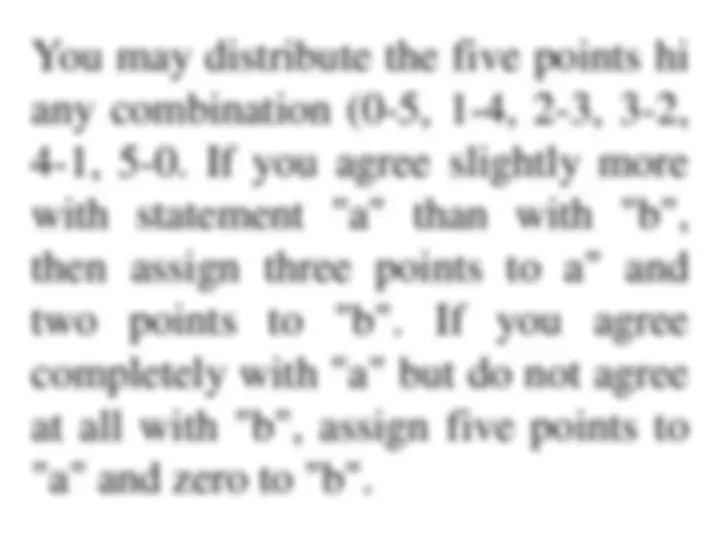
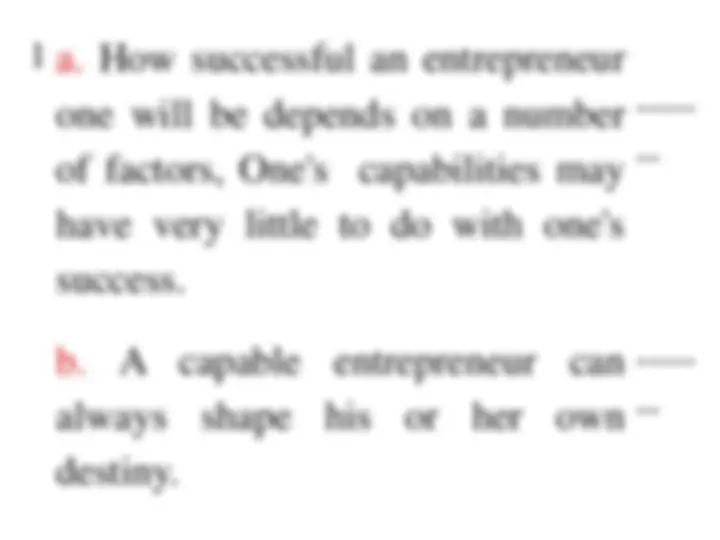
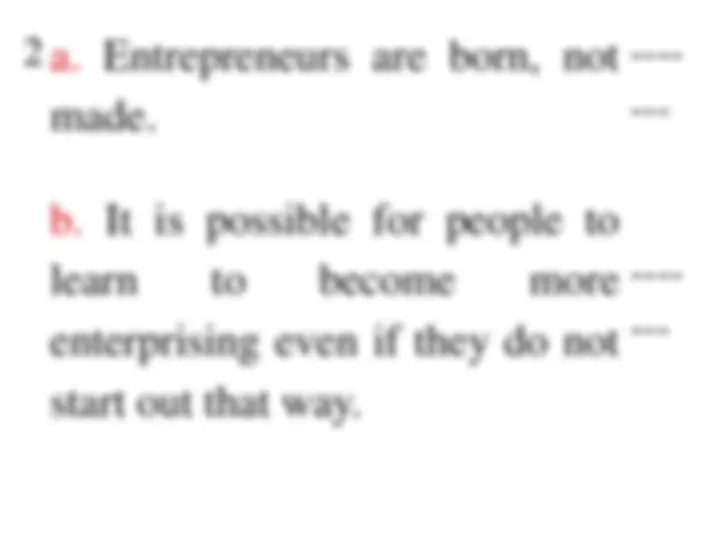
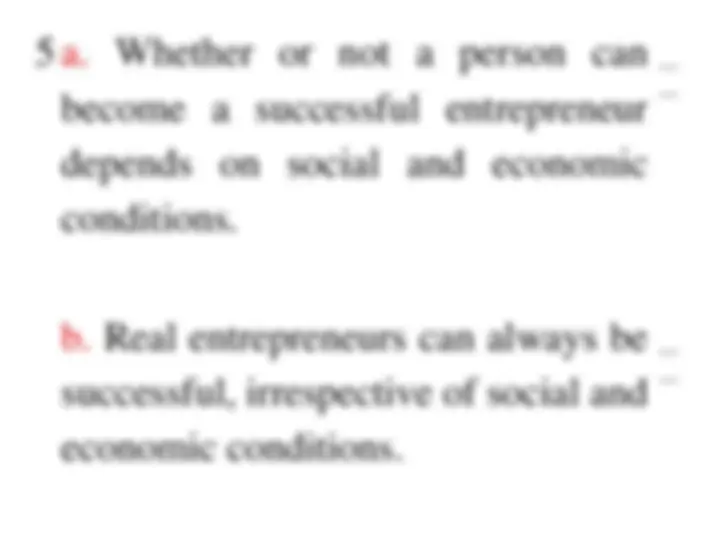
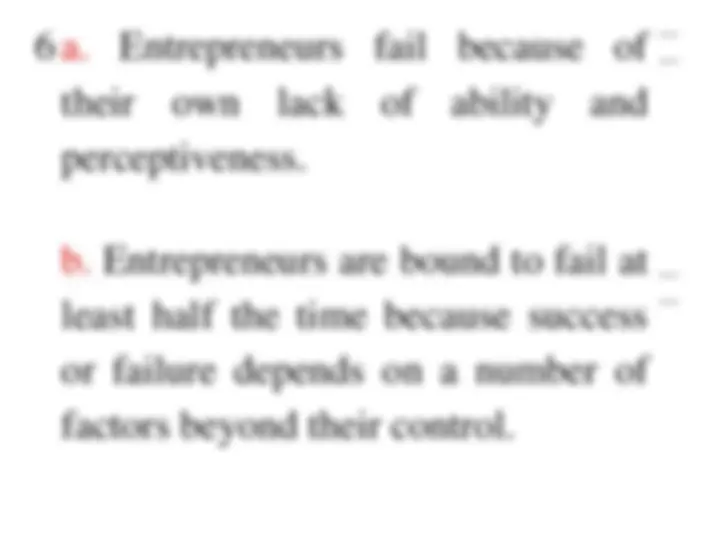
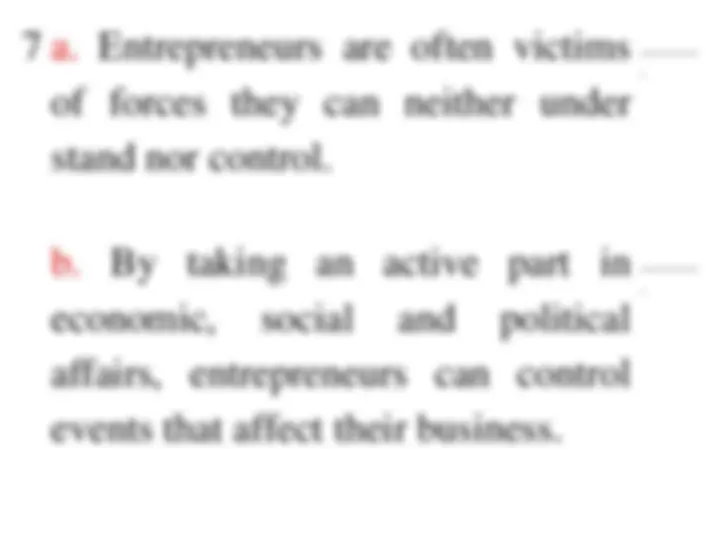
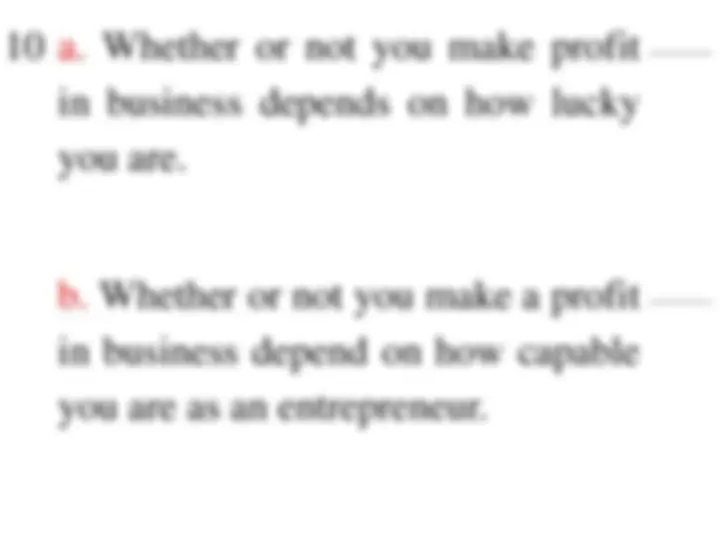
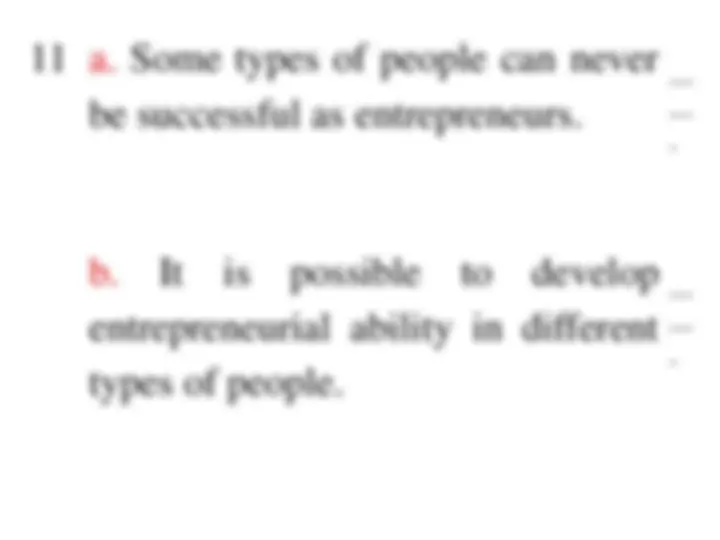
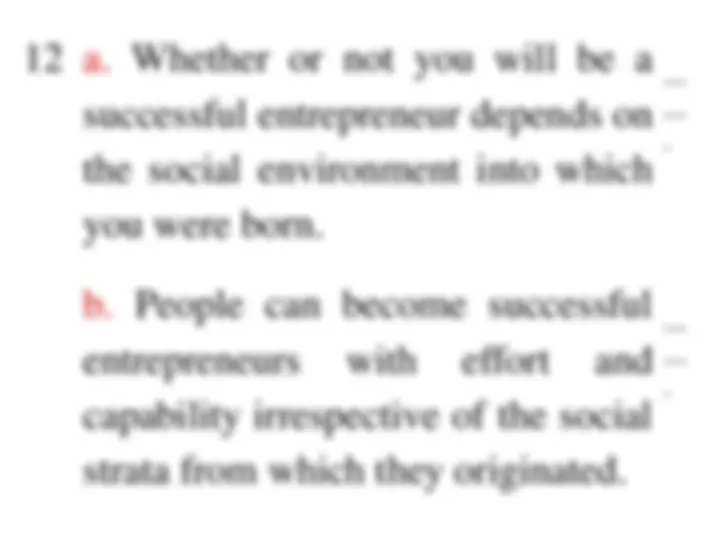
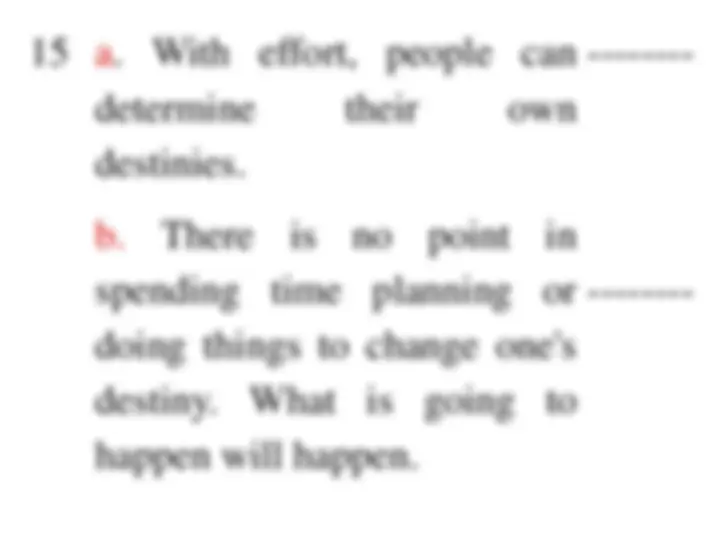
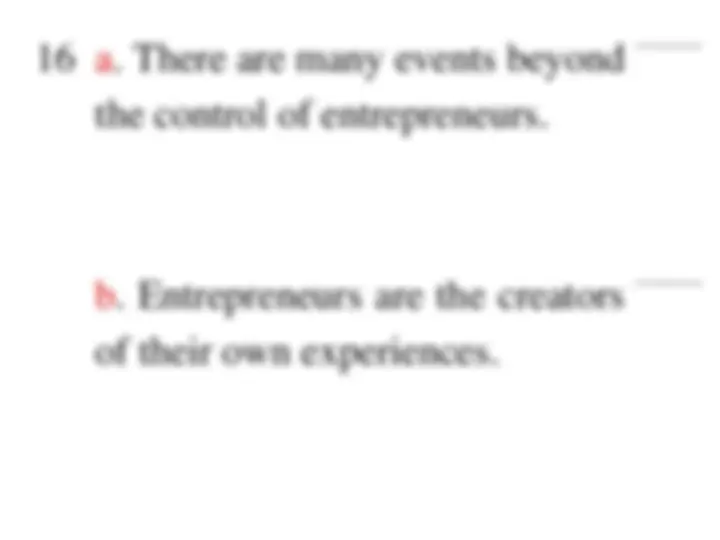
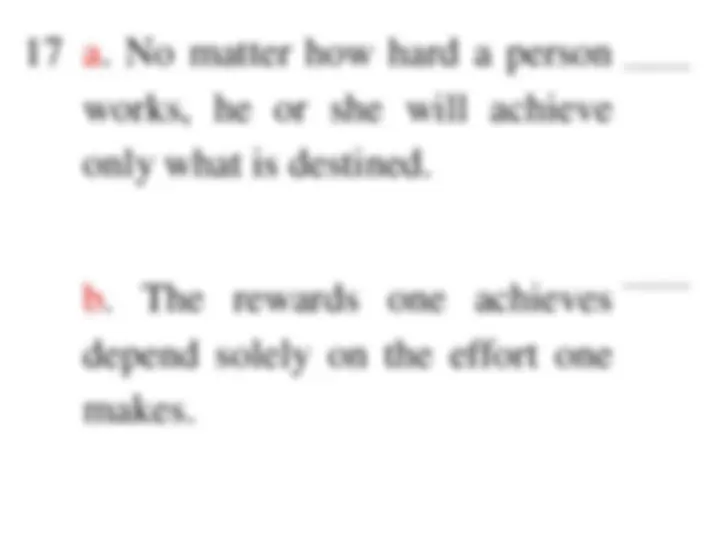
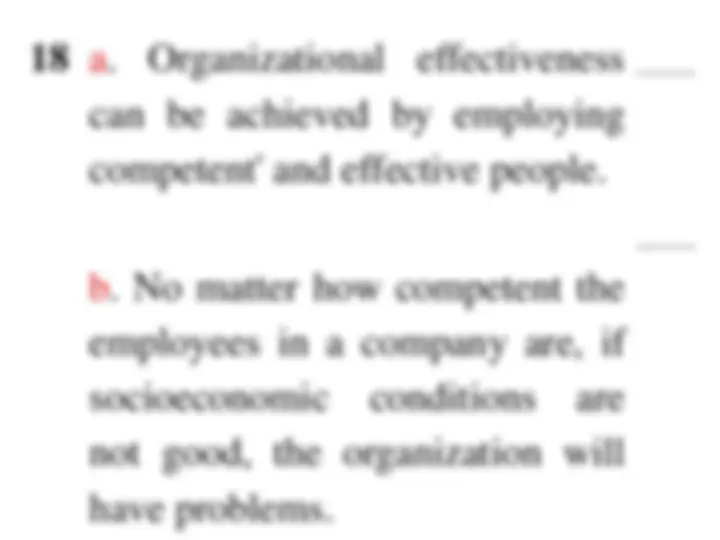

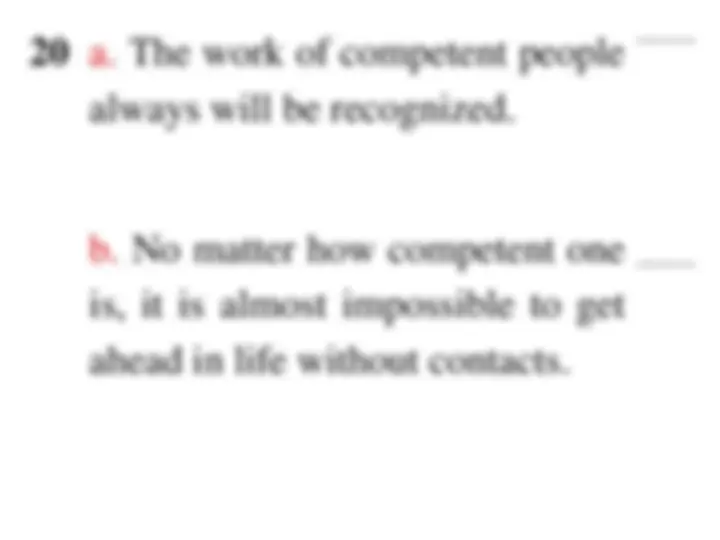
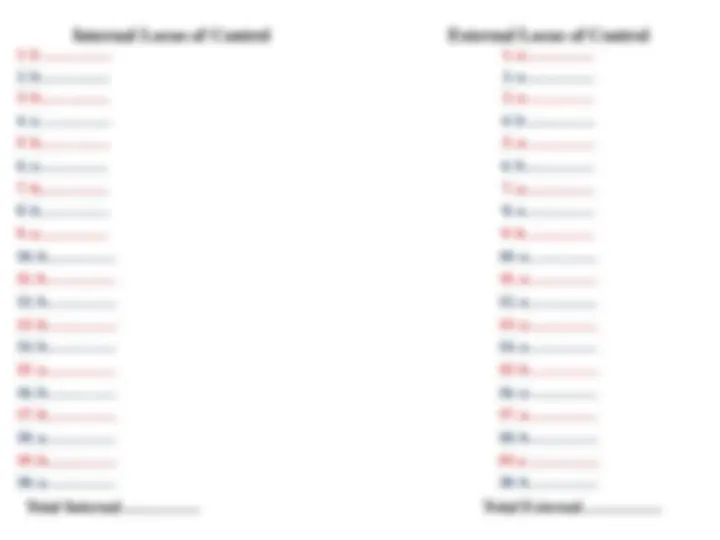
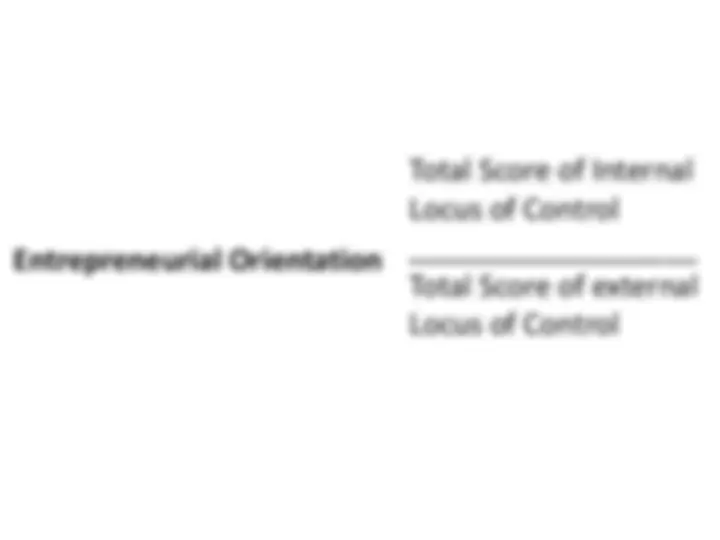
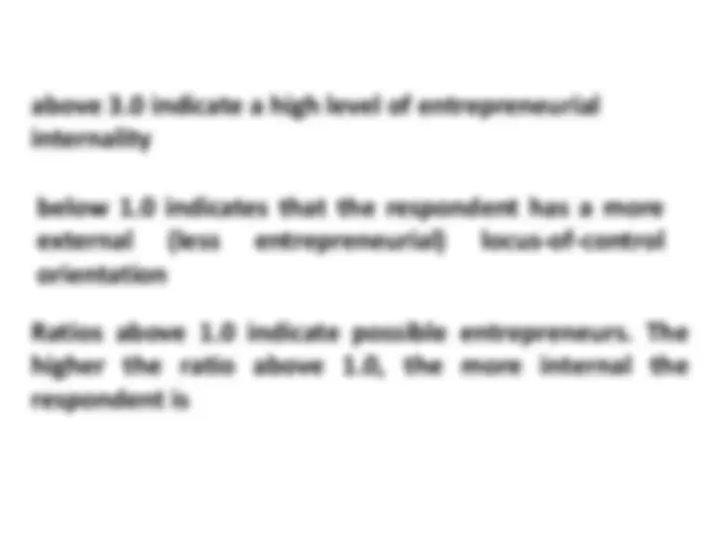
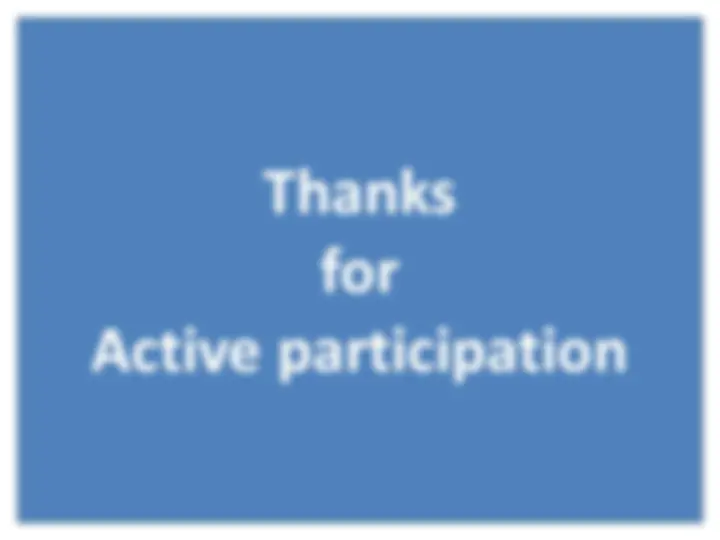


Study with the several resources on Docsity

Earn points by helping other students or get them with a premium plan


Prepare for your exams
Study with the several resources on Docsity

Earn points to download
Earn points by helping other students or get them with a premium plan
Community
Ask the community for help and clear up your study doubts
Discover the best universities in your country according to Docsity users
Free resources
Download our free guides on studying techniques, anxiety management strategies, and thesis advice from Docsity tutors
It is a kind of practical exercise for the college students.
Typology: Lab Reports
1 / 27

This page cannot be seen from the preview
Don't miss anything!




















The Entrepreneurial Orientation Inventory
Instructions: This inventory contains twenty pairs of statements. In each pair, you may agree with one statement more than the other. You have five points to distribute between the two statements in each pair, to indicate the extent to which you agree with each of the statements.
The Entrepreneurial Orientation Inventory
(^1) a. How successful an entrepreneur
one will be depends on a number of factors, One's capabilities may have very little to do with one's success.
--
b. A capable entrepreneur can always shape his or her own destiny.
--
4 a. Capable entrepreneurs believe in planning, their activities in advance.
b. There is no need for advance planning, because no matter how enterprising one is, there always will be chance factors that influence success.
5 a. Whether or not a person can become a successful entrepreneur depends on social and economic conditions.
b. Real entrepreneurs can always be successful, irrespective of social and economic conditions.
7 a. Entrepreneurs are often victims of forces they can neither under stand nor control.
b. By taking an active part in economic, social and political affairs, entrepreneurs can control events that affect their business.
8 a. Whether or not you get a business loan depends on how fair the bank officer you deal with is.
b. Whether or not you get a business loan depends on how good your project plan is.
10 a. Whether or not you make profit in business depends on how lucky you are.
b. Whether or not you make a profit in business depend on how capable you are as an entrepreneur.
11 a. Some types of people can never be successful as entrepreneurs.
b. It is possible to develop entrepreneurial ability in different types of people.
13 a. These days, people must depend at every point on the help, support, or mercy of others (governmental agencies, bureaucracies, banks, etc.)
--
b. It is possible to generate one's own income without depending too much on the bureaucracy. What is required is a knack in dealing with people.
--
14 a. The market situation today is very unpredictable. Even perceptive entrepreneurs falter quite often.
b. When an entrepreneur’s prediction of the market situation is wrong, that person can blame 'only himself or herself for failing to read the market correctly
16 a. There are many events beyond the control of entrepreneurs.
b. Entrepreneurs are the creators of their own experiences.
17 a. No matter how hard a person works, he or she will achieve only what is destined.
b. The rewards one achieves depend solely on the effort one makes.